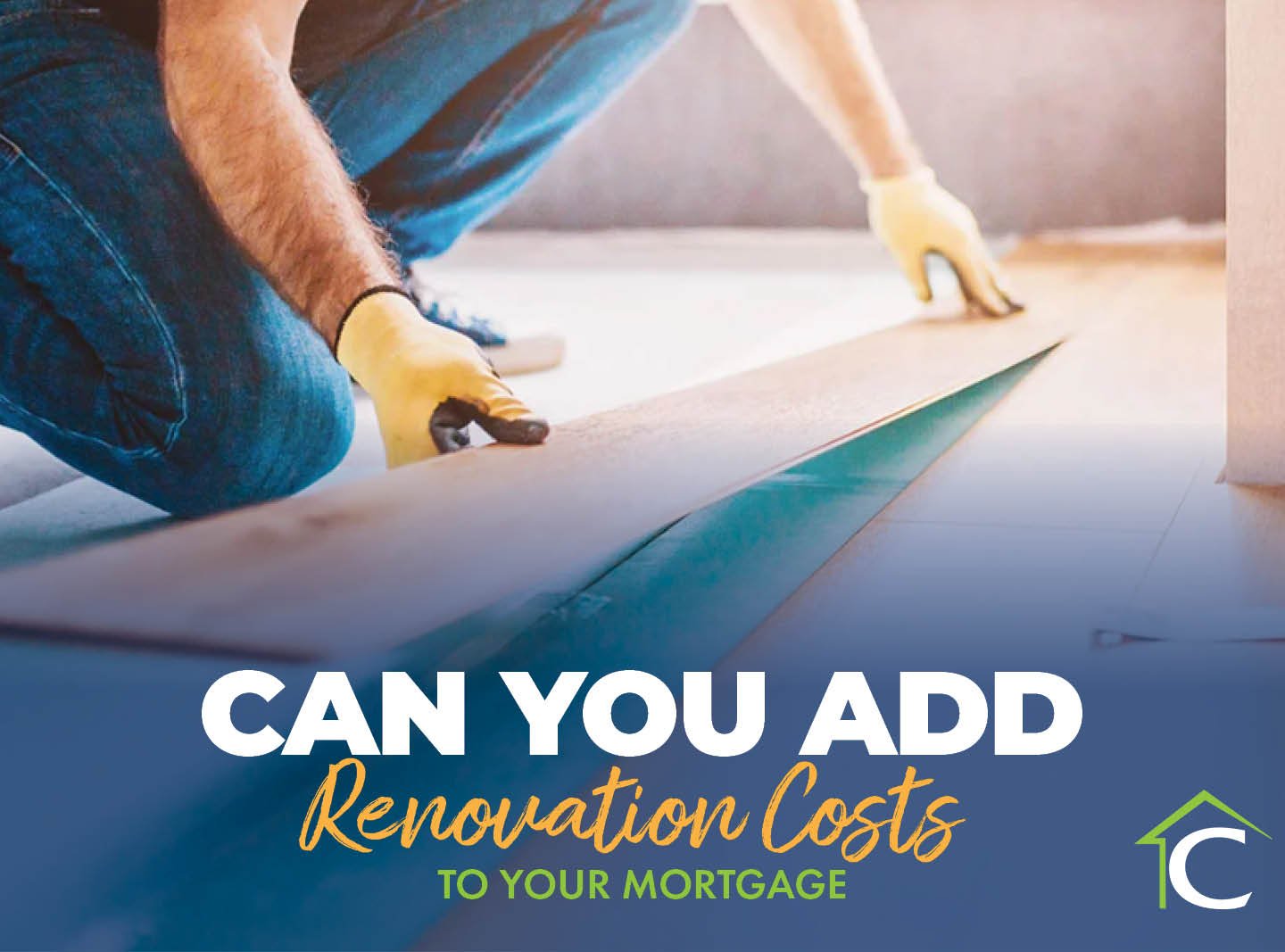When scouting new locations and properties, more and more first-time and repeat home buyers are seeking creative options, such as rehab mortgages when purchasing a fixer-upper, or renovating a current home.
Similar to any loan product, there are several considerations when researching rehab mortgages, including specific types, requirements, and qualifications. The government-backed Federal Housing Administration (FHA) 203(k) loan offers two: Limited and Standard. Conventional options, such as the Freddie Mac CHOICERenovation and Fannie Mae HomeStyle, are also appropriate solutions.
When considering what’s best, it’s important to work with a reputable and approved lender, such as Contour Mortgage.
Below we’ll examine various rehab mortgages, and outline the key advantages and disadvantages of each.
Home Renovation Loan Expectations
Similar to any mortgage approval and commitment process, a rehab loan has various requirements. Consider the following best practices:
- Gather financial documents and other required information.
- Following a mortgage commitment letter and accepted offer, you’ll then sign a real estate purchase contract.
- Bidding commences with licensed contractors providing estimates.
- The property is appraised per post-project value.
- The loan is underwritten and approved by a reputable lender.
- Fifty percent of designated funds are placed into escrow for repair costs.
- Work commences and must be completed within a six- to 12-month time frame.
- A second appraisal and final inspection are conducted for approvals.
- The lender disburses the contractor’s remaining balance. The buyer then commences monthly payments until the loan is fully paid.
Government-Backed Rehab Loans
Differing from conventional rehab mortgages, some of the most common U.S. government-sponsored loans include those backed by the FHA. Whether do-it-yourself projects or utilizing professional contractors, 203(k) renovation loans secure funding for home purchases and renovations.
It’s important to note this loan has two subtypes for renovation type, location, and work scope:
Limited 203(k)
This streamline loan is best for non-structural repairs, such as flooring, appliances, plumbing and electrical work, as well as kitchen and bathroom renovations less than $35,000. Depending on location, total costs are capped at specific amounts.
Standard 203(k)
For foundation damage caused by flooding, hurricanes and other natural disasters, this loan boasts higher limits due to more costly and time-consuming repairs. It covers the lesser of purchase and renovation costs, or 110 percent completed value.
PROS
You could make money in the long run.
Fixer-uppers garner a significant return on investment (ROI) through value increases from upgrades and repairs. Depending on location, you could land an even lower purchase price if the property requires an extreme makeover. Renovation loans are also based on the appraised, expected, post-improvement property value.
You can personalize your new home.
A limited 203(k) loan funds value-added, non-structural customized changes. These include paint colors, flooring, cabinetry, countertops, and other cosmetic improvements.
Loan qualifications are slightly more lenient.
Offered through the FHA, 203(k) loans carry less-stringent requirements concerning credit histories and scores, loan limits, and debt-to-income (DTI) ratios. While the FHA doesn’t provide buyers with actual funds, it does insure the loan through approved lenders, such as Contour Mortgage.
Only a 3.5 percent down-payment is required.
FHA 203(k) loan down payments are also significantly lower than conventional loans—you can achieve your dream home with just 3.5 percent of the selling price! You’ll also have more available cash for furniture, moving expenses, and other essentials.
You won’t spend all your money at once.
Since you'll be utilizing loan funds to upgrade your new or current home, you won't be allocating a large amount of money at once. Monthly payments can then be streamlined until the loan is fully paid.
CONS
There’s a limit on the number of units in the home you purchase.
203(k) mortgages permit buyers to purchase multi-family homes with the stipulation the property doesn’t exceed more than four units.
Only certain upgrades are covered.
All repairs and improvements must be outlined and itemized prior to approval. A reputable lender can ensure the most accurate and correct information. It’s also prudent to check specific coverage items and dollar amounts.
You’ll still be required to guarantee loan payments.
While private mortgage insurance (PMI) isn’t required, because of this loan’s low down payment requirements, you’ll have to provide upfront guarantees and annual fees. The former totals 1 percent of the loan, the latter 0.35 percent of remaining principal.
It's not ideal for borrowers requiring a turnkey home.
While some might be excited to renovate and customize a home, others prefer to purchase a move-in ready property. Buyers who aren't interested in making any major changes to their next home would benefit from other loan options.
Conventional Rehab Loans
In addition to FHA-backed 203(k) rehab loans, the Federal National Mortgage Association, also known as Fannie Mae, offers its HomeStyle Renovation Mortgage. Another option is CHOICERenovation loan, through Freddie Mac.
Fannie Mae Homestyle
This loan’s original principal cannot exceed Fannie Mae’s maximum loan limit amount. According to the HomeStyle Renovation Mortgages: Loan and Borrower Eligibility requirements, borrowers purchasing a home cannot incur rehab costs more than “75 percent of the lesser of the sum of the purchase price of the property plus renovation costs, or the ‘as-completed’ appraised value of the property.”
PROS
Both fixed- or ARM options are available.
Choose from either option to suit your needs. Note: The original principal cannot exceed the maximum mortgage amount for a conventional primary mortgage.
This loan can be combined with other Fannie Mae products.
Fannie Mae permits borrowers to bundle renovation loans with its other products, such as HomePath or RefiNow.
CONS
Complete rebuild projects don't apply.
This loan won’t cover a complete teardown or foundation reconstruction.
Additional paperwork will be required.
You’ll need to disclose additional documents, such as a work proposal, standard renovation loan agreement, consumer renovation information, and others.
Renovations must be completed within a specified time frame.
All work must culminate within 12 months of the closing date.
Freddie Mac CHOICERenovation
Suitable for single-family and multi-unit dwellings, CHOICERenovation loans can also be applied toward second homes or investment properties. Similar to the aforementioned Fannie Mae HomeStyle, this fixed or ARM is available at a 15- or 30-year term, and has lower down payment, DTI, and credit requirements.
PROS
Lower down payment and credit scores are acceptable.
Lenders will accept a down payment as low as 3.5 percent, and lower credit scores.
It's not just for single-family homes.
This loan is suitable for investment properties, second homes, and other multi-family dwellings. Certain limitations will apply per geographic location.
CONS
Bank-owned properties could require additional approvals.
If you’re considering foreclosure or auction properties, you might want to build extra time for approvals.
You cannot be affiliated with any parties involved in the loan transaction.
Borrowers can’t have a personal or professional relationship with the home’s builder, developer, or seller.
The Takeaway
When choosing the best rehab loan, it’s important to work with a reputable lender, such as Contour Mortgage. We can assist with financing requirements and the best solution for your needs.
Contour Mortgage provides various rehab loan products. Contact us today to secure the best option for your dream home.
Editor’s Note: This blog was originally published in July 2018 and has been revised to reflect industry updates.
















